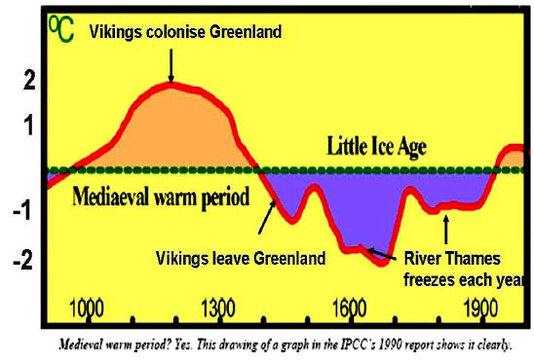I think we can have a anti global warming thread with some very interesting and enlightening dialogue.
Science is not based on a consensus, it is partly based on skepticism and should include the scientific method. Current positions from the AGW supporters include neither.
I think this is an important issue and the debate should never be over, or locked, unless forum rules are not followed.
These statements are the reason I joined this particular fray. And I would ask for clarification before proceeding. This thread is, by definition of the Pixelsmith, an Anti-Global Warming thread. The statement above, that science is not based on consensus and should include the scientific method is somewhat accurate. However, I would alter the wording a bit to -must- include, rather than "should" include, the scientific method. I would also argue that, while one may be skeptical, once the science is found to be sound and based on that, consensus is arrived at, skepticism must give way to acknowledgment.
The last statement made by Pixelsmith, that "Current positions from AGW supporters include neither" is incorrect, an assumption based on lack of said acknowledgment of scientific consensus.
At this point however, we find that Pixelsmith acknowledges the science that give the 'Greenhouse Effect' a reality. We see that Bob also acknowledges this fact and even goes on to acknowledge that the planet is warming, due to his assumption that the entire solar system is warming. He has provided links supporting that contention, which will be addressed momentarily. We also have Pixelsmith acknowledging the reality of Global warming, cooling etc etc., although his issue tends to be with the politics of AGW, rather than the fact that it is a reality. I think this is where we are at, correct?
Bob, I appreciate the time you took to post those links. However, they don't seem to support your position. Take for example a quote from the MIT piece regarding climate change on Pluto
.Jay Pasachoff, an astronomy professor at Williams College, said that Pluto's global warming was "likely not connected with that of the Earth. The major way they could be connected is if the warming was caused by a large increase in sunlight. But the solar constant--the amount of sunlight received each second--is carefully monitored by spacecraft, and we know the sun's output is much too steady to be changing the temperature of Pluto."
Pluto's orbit is much more elliptical than that of the other planets, and its rotational axis is tipped by a large angle relative to its orbit. Both factors could contribute to drastic seasonal changes.
I also read your link on the prediction of climate change on Jupiter.
Maybe I'm not understanding you Bob? The contention that climate change is not solely a phenomenon found on Earth is not disputed. However, it happens for different reason on different planets based on different variables, correct? So the contention that Earth is warming because all the other planets are, is lost on me. Unless you are saying that it is due to increased solar output? In which case, you have completely failed to back up your claim scientifically.Jupiter's atmosphere, as observed in the 1979 Voyager space craft images, is characterized by 12 zonal jet streams and about 80 vortices, the largest of which are the Great Red Spot and three White Ovals that had formed<sup>1</sup> in the 1930s. The Great Red Spot has been observed<sup>2</sup> continuously since 1665 and, given the dynamical similarities between the Great Red Spot and the White Ovals, the disappearance<sup>3, </sup><sup>4</sup> of two White Ovals in 1997–2000 was unexpected. Their longevity and sudden demise has been explained<sup>5</sup> however, by the trapping of anticyclonic vortices in the troughs of Rossby waves, forcing them to merge. Here I propose that the disappearance of the White Ovals was not an isolated event, but part of a recurring climate cycle which will cause most of Jupiter's vortices to disappear within the next decade. In my numerical simulations, the loss of the vortices results in a global temperature change of about 10 K, which destabilizes the atmosphere and thereby leads to the formation of new vortices. After formation, the large vortices are eroded by turbulence over a time of60 years—consistent with observations of the White Ovals—until they disappear and the cycle begins again.
I hope your not really giving up that easy Bob...
So we are at the point where we need to explain why the Earth is warming. The theory that it is doing so due to increase CO2 in the atmosphere (which is composed of gases) seems to be proven to a great extent. Basically, The Greenhouse Effect (not disputed). An argument has been put forth that the warming is due to increased Solar output (I think). This has yet to be backed by the "Scientific Method" and so should be discarded for the sake of this discussion. Unless someone else would like to make a go of it.
There is a major difference between the science that's supports the reality of AGW, and the politics of what should be done about it. It's confusing the two that plays the devil. I am aiming for clarification and separation between the two in this thread. Hopefully I'm not alone in feeling that this is a critically important task.

